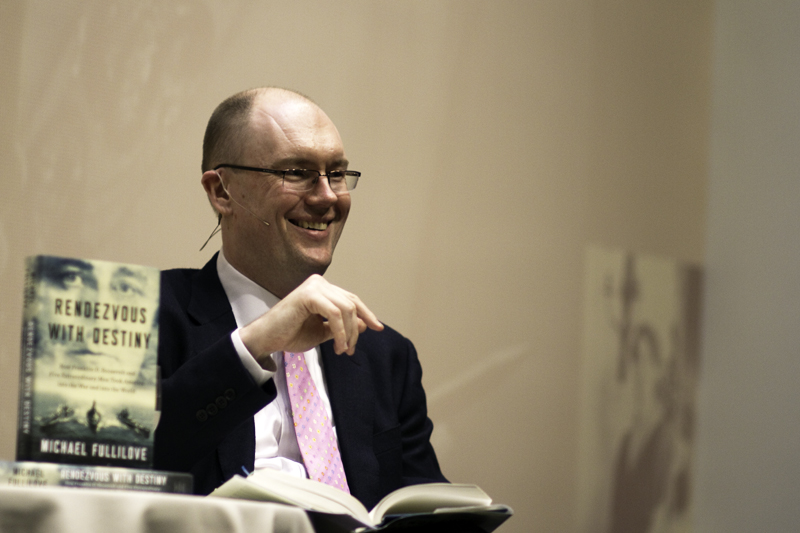PROGRAM
Introductory remarks by Rita E. Hauser, President, The Hauser Foundation.
Rendezvous with Destiny tells the remarkable story of Franklin D. Roosevelt and the five extraordinary men he used to pull America into World War II. Between Hitler’s invasion of Poland in September 1939 and Japan’s attack on Pearl Harbor in December 1941, FDR sent five remarkable men on dramatic and dangerous missions to Europe that confounded and infuriated diplomats on both sides of the Atlantic. Their importance to the course of the Second World War is little understood to this day.
The envoys were unforgettable characters. Sumner Welles, the patrician undersecretary of state, later ruined by his sexual misdemeanors, who was dispatched by FDR on a tour of European capitals in the spring of 1940. William “Wild Bill” Donovan — war hero and future spymaster — who after the fall of France visited a lonely United Kingdom to determine whether she could hold out against the Nazis. And then came Lend-Lease and the three men FDR dispatched to help secure it. Harry Hopkins, the frail social worker and presidential confidant, was sent to explain Lend-Lease to Winston Churchill. Averell Harriman, the ambitious railroad heir, served as FDR’s man in London, expediting aid and romancing Churchill’s daughter-in-law. Roosevelt even put to work his rumpled, charismatic opponent in the 1940 election, Wendell Willkie, whose visit lifted British morale and won wary Americans over to the cause. Finally, in the aftermath of Germany’s invasion of the Soviet Union, Hopkins returned to London to confer with Churchill and traveled to Moscow to meet with Joseph Stalin.
The envoys’ missions took them into the middle of the war; taken together, they plot the arc of a divided and hesitant America transformed into the global leader. At the center was FDR himself, who moved his envoys around the globe with skill and élan.
Harry S. Truman, George Marshall, Dean Acheson, and George F. Kennan are often thought of as the authors of America’s global primacy in the second half of the twentieth century. But their achievements were preceded by the work of Roosevelt and his representatives, who took the United States into the war and, by defeating domestic isolationists and foreign enemies, into the world. Drawing on archival research, Michael Fullilove shows that in these two years, America turned. FDR and his envoys were responsible for the turn.
SPEAKERS
Michael Fullilove Executive Director of the Lowy Institute, Senior Fellow at the Brookings Institution in Washington, D.C.
A Rhodes scholar and former prime ministerial adviser, Fullilove writes widely on global issues for publications such as the New York Times, the Financial Times, the Daily Beast, and Foreign Affairs.
Andrew Polsky Faculty Associate and Professor of Political Science at Hunter College
A former editor of the journal Polity, Andrew Polsky is the author of The Rise of the Therapeutic State and most recently Elusive Victories: The American Presidency at War.

























